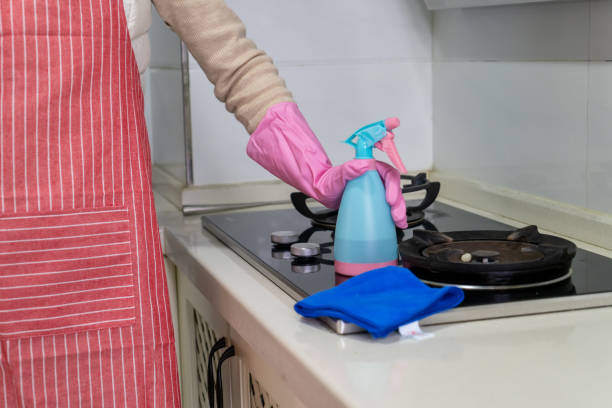Induction cooking has revolutionized the way we prepare meals, offering efficiency and precision. Central to the functionality of induction cooktops are power measurement sensors. These sensors ensure that the induction elements provide the right amount of power for cooking. However, like any technology, issues can arise with these sensors, potentially affecting cooking performance. In this article, we will delve into the problems associated with the operation of induction power measurement sensors and explore potential solutions.
How Induction Power Measurement Sensors Work
Before addressing issues with these sensors, it’s essential to understand how they work. Induction cooktops use electromagnetic fields to heat cookware directly. Power measurement sensors monitor the electrical current and voltage applied to the induction coil. From these measurements, the sensor calculates the power supplied to the cookware. This process allows for precise control of cooking temperatures.
Common Problems with Induction Power Measurement Sensors
Power Fluctuations: One of the most common issues is power fluctuations. Sensors may inaccurately detect the power level, causing fluctuations in cooking temperatures. This can lead to unevenly cooked food.
Power Loss: In some cases, the sensors might experience power loss or fail to measure power accurately. This can result in underpowered cooking elements, where they don’t reach the desired temperature.
Overheating: Overheating of power measurement sensors can occur when the surrounding environment or internal components generate excessive heat. High temperatures can affect sensor accuracy and lifespan.
Sensitivity to Cookware: Power sensors can be sensitive to the type and quality of cookware used. Some sensors may have difficulty accurately measuring power with certain materials or shapes of cookware.
Calibration Issues: Calibration problems can cause power measurement sensors to provide inaccurate readings. This can lead to difficulties in achieving precise cooking temperatures.
Effects of Sensor Issues
When induction power measurement sensors encounter problems, it can have a significant impact on the cooking experience:
Inaccurate Cooking Temperatures: Food may not cook as expected, resulting in overcooked or undercooked dishes.
Frustration: Users may become frustrated by inconsistent performance and unpredictable results.
Energy Inefficiency: Inaccurate power measurements can lead to energy inefficiency, as the cooktop may draw more power than necessary.
Reduced Lifespan: Overheating or power loss issues can reduce the lifespan of the cooktop or require costly repairs.
Solutions and Troubleshooting
Check Cookware Compatibility: Ensure you are using cookware that is compatible with induction cooking. Pots and pans should have a magnetic bottom for efficient heat transfer.
Sensor Calibration: Some cooktops allow sensor calibration. Refer to the user manual to see if you can recalibrate the power measurement sensor for more accurate readings.
Professional Repair: If you suspect sensor issues that you can’t resolve through calibration or cookware changes, it’s best to seek professional repair. Technicians can diagnose and fix sensor-related problems.
Maintain Proper Ventilation: Overheating of sensors can be prevented by maintaining proper ventilation around the cooktop. Ensure that vents are not obstructed and that the cooktop is clean.
Regular Maintenance: Regular maintenance can extend the life of your induction cooktop. Cleaning the surface and ensuring all components are free from debris can help prevent sensor issues.
Warranty Service: If your appliance is under warranty and you encounter sensor problems, contact the manufacturer for service. Warranty coverage can help you avoid repair costs.
Induction cooktops have revolutionized cooking by offering precise temperature control and energy efficiency. Central to this technology are power measurement sensors that monitor and regulate cooking temperatures. However, problems with these sensors can lead to power fluctuations, power loss, overheating, and calibration issues. Understanding these problems is the first step in addressing them.
Users can take several steps to troubleshoot sensor issues, including checking cookware compatibility, calibrating sensors, and maintaining proper ventilation. In cases where problems persist or are more complex, it’s advisable to seek professional repair or take advantage of warranty service. With the right approach to addressing sensor issues, users can continue to enjoy the benefits of induction cooking, with its precise temperature control and energy efficiency.
The best solution is to call a master at home or contact the service center. This calls us, and we will give you the best repair HOME APPLIANCE SERVICE CENTER . With our superior performance, absolute accuracy, extensive knowledge and experience, fast and efficient service, friendly attitude, free maintenance consultation and after-service warranty, we are proud to say that we are the leading Repair Service Provider in San Diego. Customer satisfaction is our top priority, and we are always committed to what we do. We are open 24/7 a week, on weekends and holidays. Our engineers will come to you 15 minutes after your call in urgent cases. Give us a call, and HOME APPLIANCE SERVICE CENTER will solve any problem.
Contact us
 619-928-5000
619-928-5000  Request Service
Request Service 
